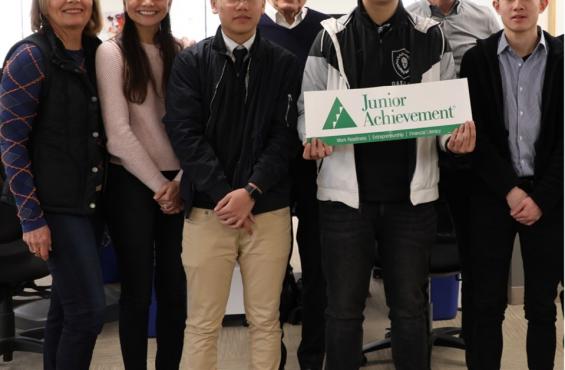People who start investing earlier in life often have a tremendous advantage later on. But most people don’t get serious about investing until they’re near retirement.
One of our goals is to help educate and inspire the next generation of investors, so we recently worked with Junior Achievement, an organization that also focuses on financial literacy for young people.
We were paired up with three San Francisco high school students who were interested in finance and considering a career in investing.
What do younger people need to know?
Here’s three things we shared with these students:
1. It’s never too early to start learning.
“What’s the first thing I should do when I turn 18?”, one of the students asked us. Our answer? Why wait until you’re 18 to start learning, saving, and investing?
While you typically need to be age 18 to open an investment account, you could ask a parent to open a custodial account so you can begin to save and invest. And it’s never too early to learn about how the stock and bond markets work.
2. Funds can be a great way to get started
The students knew about stocks, but they weren’t familiar with mutual or exchange-traded funds. Funds can be a good tool for newer investors. With one fund, you can own hundreds or even thousands of individual stocks.
The students sat in on one of our investment committee meetings so they could see how our advisors choose funds, and they also met with our trading team to learn more about how funds change hands.
3. Consider the risks
Newer investors often assume that investing is about owning one great stock, but as portfolio manager Avani Rau told the students, stock investing can be risky. Stocks can and have gone to zero, and even stocks that look great now, like Apple or Amazon, have had very steep declines at times. This is why it’s so important to think about how to mitigate risk.
Join us. Share your wealth of knowledge with the next generation
If you’ve been investing for many years, you’ve likely been able to grow your money, perhaps beyond what you’d ever expected, and in the process, you’ve probably also learned a great deal about investing.
We believe that one of the best things you can do with this wealth of knowledge is to share it with other people—your friends, your children or perhaps even your grandchildren.
Not sure where to start? Click here to get our tips.

When we think about leaving a legacy, we usually think about money, but knowledge is also an extremely valuable and often more important gift. Your wealth of investing experience could empower a new generation of investors.
